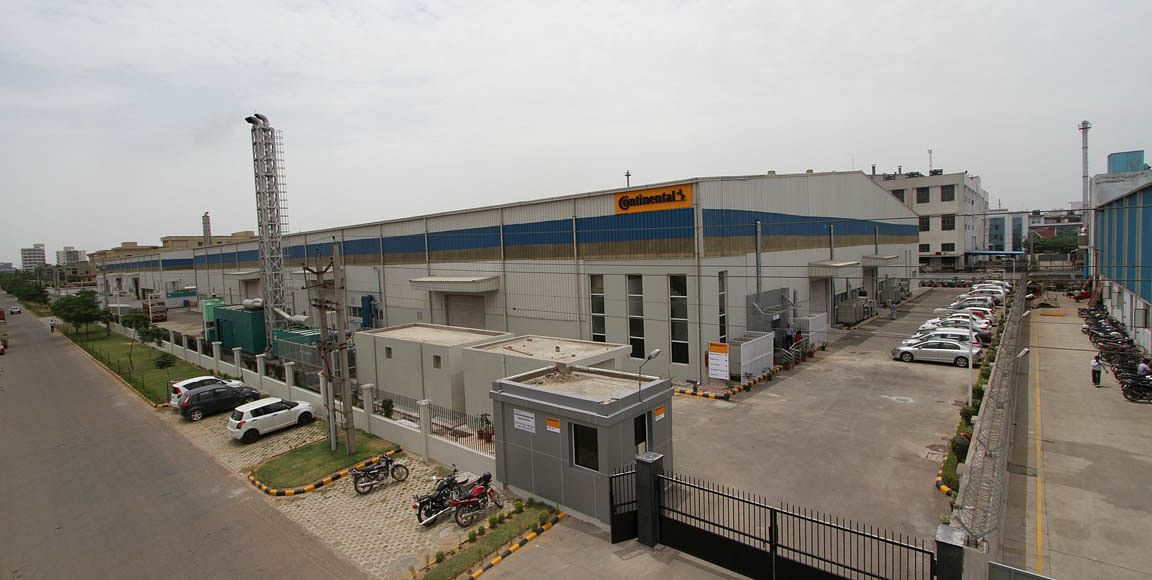ABS market in India a Rs 6,500 crore opportunity for suppliers: ICRA
Growing awareness of vehicle safety among consumers in India along with upcoming mandatory safety norms is set to be a sharp driver of sales of essential safety kit like ABS (Anti-lock Braking System).
Growing awareness of vehicle safety among consumers in India along with upcoming mandatory safety norms is set to be a sharp driver of sales of essential safety kit like ABS (Anti-lock Braking System).
ABS essentially uses wheel speed sensors to determine if one or more wheels are trying to lock up during braking. If a wheel tries to lock up, a series of hydraulic valves limit or reduce the braking on that wheel. This prevents skidding and allows the vehicle driver/rider to maintain steering control.
While ABS has become mandatory fitment for all new heavy commercial vehicles in India from October 2015, it is being made mandatory for all above-125cc two-wheelers from April 2017. Also from October 2017, when the Bharat New Vehicle Safety Assessment Programme (BNVSAP) comes into effect, critical safety features such as airbags, ABS and seatbelt reminders will become standard in cars sold in India as also mandatory crash testing (offset front crash, side and rear impact tests).
With ABS fitment becoming mandatory across commercial vehicles, passenger vehicles (cars, utility vehicles and vans) and two-wheelers, demand is likely to be stratospheric in the country. Global suppliers like Bosch and Continental as well as home-grown majors like Brakes India will be key beneficiaries of the mandatory implementation of ABS for two-wheelers and passenger vehicles (PV).
According to ratings agency ICRA, the current ABS penetration of 30% in the PV segment and minimal ( < 5%) in the two-wheeler segment means the ABS market could turn out to be a humungous Rs 6,500 crore opportunity for suppliers by FY2019.
Status of ABS on two-wheelers worldwide
As of 2017, all newly registered motorised two-wheelers with more than 125cc displacement throughout the EU must be fitted with an antilock braking system. In Japan, ABS will be mandatory from October 2018 for new type approvals for motorcycles with more than 125cc. In emerging markets such as India, Brazil and Taiwan, too, laws mandating ABS in the future have already been passed. The issue is on the political agenda in the United States.
“ABS can prevent one-quarter of all motorcycle accidents resulting in casualties,” says Bosch board of management member Dr Dirk Hoheisel, quoting from GIDAS, the German In-Depth Accident Study. The company has developed the latest version of this life-saving technology with the needs of emerging markets like India and Indonesia in mind. ABS10 is smaller and lighter than previous versions: compared to the current ABS9, Bosch engineers have managed to reduce the weight by almost 30 percent and the size by almost 45 percent. As well as optimising size and weight, the German supplier has focused on reducing costs. As a result, the system is now also suitable for use in small motorcycles with up to 250cc displacement – a segment that is both price-sensitive and popular in emerging markets. “We are bringing our ABS technology to all vehicle classes and markets,” Hoheisel says.
Earlier this year, Continental announced that its Chassis & Safety Division will start production of ABS and ESC units in India later this year. A new assembly line for ABS and ESC for passenger cars and later ABS for two-wheelers will be set up in the existing Continental Automotive Brake Systems plant in Gurgaon, Haryana (pictured below). The local production start of the Electronic Control Unit (ECU) is planned for year 2018 in Bangalore.
The company targeting the delivery of its first localised ABS/ESC products for India to a leading vehicle manufacturer, by end of 2016. “The Indian market is one of the world’s largest markets for compact cars and two-wheelers. By producing these systems in the market for the market, we are matching our portfolio to the requirements of our local customers, while keeping our technologies affordable,” said Felix Bietenbeck, head of Continental’s business unit Vehicle Dynamics.
“India tops the list of nations in total number of road fatalities. The widespread use of ABS, airbags and ESC in vehicles can contribute considerably to reducing the number of serious injuries and fatalities on Indian roads”, said Claude d’Gama Rose, managing director, Continental Automotive Components India. “With decades of experience in this area, Continental offers a portfolio of high performance, advanced products which can contribute to greater road safety,” he added.
Indian components industry to clock 8-10% growth in FY2017
Meanwhile, ICRA expects the Indian auto component industry to gain momentum and register growth of 8-10% in the next fiscal (FY2017). As is known, M&HCV demand is likely to stay robust albeit slow down to 13-15% given the increased base of FY2016.
The recent ban on diesel vehicles in NCR and additional levy of 1-4% infrastructure cess on PVs in the Union Budget will impact overall demand momentum in the PV segment which accounts for the bulk of the domestic OE demand for auto components. Over the medium to long term, growth in the auto component industry will be higher than the underlying automotive industry growth given the increasing localisation levels by OEMs, higher component content per vehicle and rising exports from India.
RELATED ARTICLES
Bajaj Auto launches new Chetak 3503 at Rs 110,000
The Chetak 3503, with a claimed range of 155km, 63kph top speed and a slower charging time than its 35 Series siblings, ...
Hyundai walks the eco talk with biogas plant, material recovery plant in Gurugram
Operational since October 2022, the facility targets sustainable waste management in Gurugram by undertaking scientific ...
Rajiv Bajaj reappointed MD and CEO of Bajaj Auto for five-year term
Bajaj Auto’s Board of Directors has approved the re-appointment of Rajiv Bajaj as the company’s MD and CEO for another f...






 By Autocar Professional Bureau
By Autocar Professional Bureau
 30 Mar 2016
30 Mar 2016
 21975 Views
21975 Views












